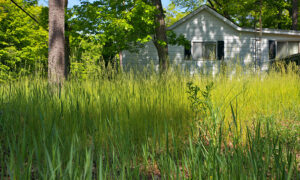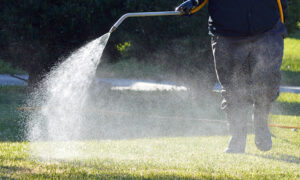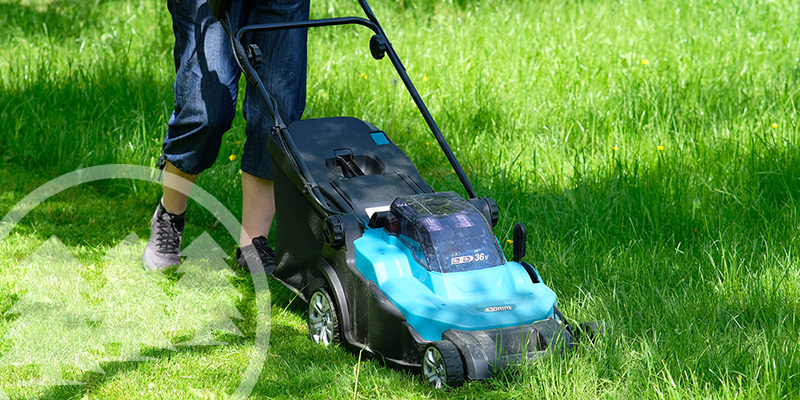Mowing vacant lots in HOAs is not an uncommon routine. Sometimes, lot owners invest in land and put off building on it for many years. In homeowners associations, though, this practice can result in several problems. Overgrown grass has several downsides; it won’t take long before other homeowners complain. However, whether or not the HOA can take matters into its own hands depends on a few things.
Who Is Responsible for Mowing Vacant Lots?
In HOA communities, homeowners are generally responsible for maintaining their lots or properties. This includes lawn or yard maintenance. On the other hand, the HOA is responsible for maintaining the common areas and elements in the neighborhood. More often than not, the allocation of obligations or responsibilities can be found within the governing documents of the association.
In some HOAs, though, homeowners may rely on the association for landscaping. In such cases, the HOA provides landscaping or mowing services to all owners, with the fees charged equally among all members as regular dues. Sometimes, this service is optional, with owners free to choose if they wish to avail of the HOA’s landscaping services.
Homeowners must seek landscaping or mowing services if they bear maintenance responsibilities for their lots. They may also choose to mow the grass independently, provided they meet the association’s standards.
The setup doesn’t change when it comes to vacant lots. If the governing documents state that owners are responsible for lot maintenance, they must arrange landscaping or mowing services themselves.
What If the Owner Fails to Mow Their Vacant Lot?
 Ideally, all lot owners would abide by the rules of the HOA without fail. Unfortunately, many owners neglect their obligations, including mowing vacant lots. When owners fail to fulfill their maintenance responsibilities, they can face several potential consequences.
Ideally, all lot owners would abide by the rules of the HOA without fail. Unfortunately, many owners neglect their obligations, including mowing vacant lots. When owners fail to fulfill their maintenance responsibilities, they can face several potential consequences.
One of the most common penalties is fines. Homeowners associations generally have the authority to impose fines for rules violations. This authority usually stems from state laws or the association’s governing documents.
For instance, in North Carolina, Section 47F-3-102 of the Planned Community Act gives HOAs the authority to impose reasonable fines after providing notice and an opportunity to be heard. The same section allows HOAs to suspend a member’s privileges, another common penalty association used to enforce the rules.
Some HOAs step in and mow the lot for the absent owners. In such cases, the HOA will charge the cost of the services to the owner by including it in their dues. Depending on state laws and governing documents, owners still pay dues on empty lots.
When an owner defaults on their HOA dues, the association has a handful of recourses available. The association can charge a late fee, take legal action, place a lien on the property, and even initiate foreclosure proceedings.
Seeking Permission for Vacant Lot Mowing
Does an HOA need to secure permission from the lot owner before mowing their empty lot? This is a tricky question with a not-so-straightforward answer. Most of the time, an association’s governing documents will discuss vacant land mowing and give the HOA the authority to mow empty lots if owners fail to uphold their maintenance obligations. Such a provision must exist in your governing documents before taking action. In doing so, your HOA may avoid potential liability.
The Pitfalls of Not Mowing Empty Lots
Lawn or lot maintenance is paramount to the success of any community. When owners fail to take care of their lots, a few consequences may follow.
1. Reduces Curb Appeal and Property Values
Overgrown grass is not a good look. It makes any lot appear unkempt and downright repulsive. Because grass does not grow at the same pace, some areas will have taller blades, whereas others will begin drying out. Woody shrubs and weeds will start sprouting when owners let their lots get overgrown.
Homeowners associations have the primary goal of preserving property values. With untidy lots, that goal is difficult to achieve. Curb appeal will most certainly plummet, along with property values in the community. Before long, homeowners will lodge complaints and call for the HOA to take action.
2. Makes Maintenance More Difficult
Most HOA communities require owners to maintain their lawns or lots and keep grass at a certain height. This is to enhance curb appeal, protect property values, and make it easier to maintain grass altogether.
When owners allow grass to grow past the usual limit, they create a difficult situation for themselves. Overgrown grass tends to be harder to mow down. Hiring a landscaping company can help, but it will most likely charge a higher price. Overgrown grass takes more time and better equipment to mow down.
3. Breeds Pests and Other Dangers
 Overgrown grass is a breeding ground for all sorts of pests. Insects, rats, gophers, raccoons, and even snakes can make these vacant lots their home. It is even more difficult to spot these pests and eliminate them because the tall grass hides them perfectly.
Overgrown grass is a breeding ground for all sorts of pests. Insects, rats, gophers, raccoons, and even snakes can make these vacant lots their home. It is even more difficult to spot these pests and eliminate them because the tall grass hides them perfectly.
These pests pose a threat not only to the safety of residents but also to pets. Furthermore, these pests may find their way into neighbors’ homes, leading to a community-wide pest issue. Associations must invest in more rigorous pest control, which can significantly dent the operating budget.
As with most things, prevention is easier and cheaper than the cure. Mowing vacant lots will prevent pests from shacking up in the tall grass and keep hazards at a minimum.
The Bottom Line
When it comes down to it, mowing vacant lots is a necessary practice. Whether that responsibility rests on the shoulders of the HOA or the lot owner depends on the governing documents. The same documents should dictate who pays for the service, though it usually falls into the owner’s hands in the form of dues. Ultimately, though, if an HOA board has any doubts, it is best to consult a lawyer.
Cedar Management Group helps HOAs and condominiums interpret state laws and governing documents, among other things. Call us today at (877) 252-3327 or contact us online to learn more!
RELATED ARTICLES:
- HOA Property Maintenance: What Is Your HOA Responsible For?
- HOA Backyard Rules: What Can And Can’t Homeowners Do
- What Can The Board Do With Stray Animals In An HOA Community?






